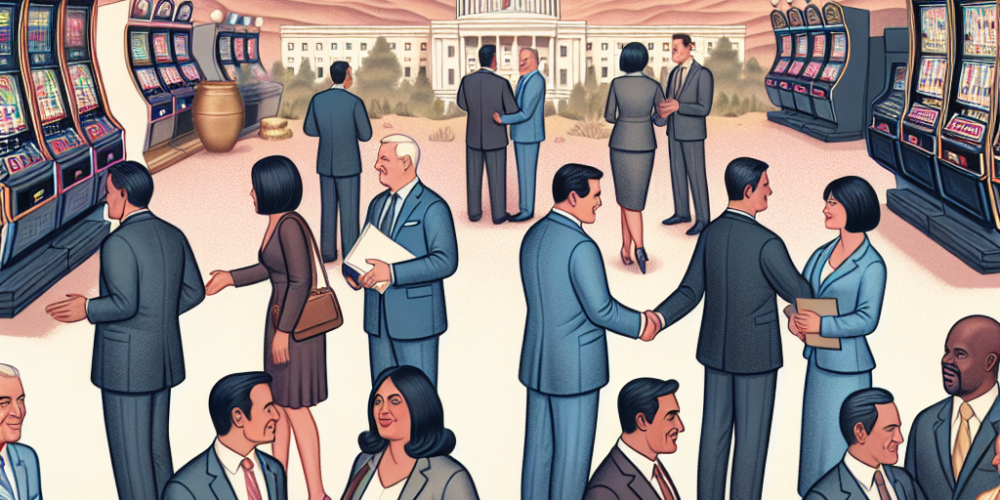In a significant development for the gaming industry, Nevada has recently passed a new legislative framework that directly impacts taxes levied on slot machine operators throughout the state. This reform, aimed at boosting the economic health of casinos post-pandemic, introduces a sliding scale of tax rates based on the revenue generated by each facility from their slot machines.
Previously, slot machine operators were subject to a flat tax rate that was considered by many in the industry to be disproportionately high, especially for smaller casino operations. The new tax structure, which was signed into law last Thursday, is poised to encourage growth in the sector and attract more operators to invest in Nevada’s gaming industry.
Under the new law, casinos generating under $10 million annually from slot machines will see their tax rate drop from 6.75% to 4.5%. This reduction is expected to provide significant relief and potentially revitalize smaller casinos that have struggled to achieve profitability. For larger operations generating more than $10 million, the tax rate will incrementally rise, maxing out at 9% for revenues exceeding $135 million.
The legislative change has been met with mixed reactions. Proponents argue that the revised tax structure will make Nevada an even more attractive gaming destination, potentially leading to increased investments and job growth within the state. “This is a pivotal moment for Nevada’s gaming sector,” remarked Senator Jane Doe, one of the bill’s sponsors. “By incentivizing profitability and reducing financial burdens on smaller operators, we are paving the way for a more diverse and resilient gaming industry.”
However, critics express concerns over the potential long-term fiscal implications for state revenues, which heavily depend on the gaming sector. They worry that the reduced tax rates for smaller operators might lead to a significant decrease in state income, which funds critical public services including education and healthcare. “We are taking a gamble with our public funding,” noted economist John Smith, emphasizing the need for careful monitoring of the law’s impact.
The reform also introduces new incentives for the adoption of innovative slot machine technologies. Operators investing in upgraded, high-tech slot machines or systems that enhance player safety and security will benefit from additional tax credits, a move that aligns with ongoing industry trends towards digitalization and enhanced user experience.
This legislative shift comes at a time when the global slot machine market is undergoing significant changes with the introduction of more sophisticated technology and a shift towards online gambling. Analysts believe that these changes could redefine gaming patterns, not only in Nevada but across the world.
Industry leaders are also closely monitoring the rollout of this new tax regime. Many are optimistic about the potential for growth it brings, especially in areas like Las Vegas, where slot machines have long been a cornerstone of casino appeal. Casino operator Big Win Corp has already announced plans to expand operations, citing the new tax law as a key factor in its decision to invest further in the state.
As these developments unfold, the effects of the new tax law will be observed keenly both in Nevada and nationally, serving as a potential model for other states grappling with similar issues in their gaming industries. With the changes set to take effect from the next fiscal year, all eyes will be on Nevada to gauge the success of this bold approach to supporting the gaming sector amid evolving market dynamics.

David Farbacu is a seasoned writer with a passion for games, gaming, casinos, and Xbox. With a wealth of experience in the industry, David brings insightful reviews, comprehensive guides, and engaging articles that cater to both casual gamers and hardcore enthusiasts. His expertise spans across various gaming platforms and genres, making him a go-to source for the latest trends and developments in the gaming world.

